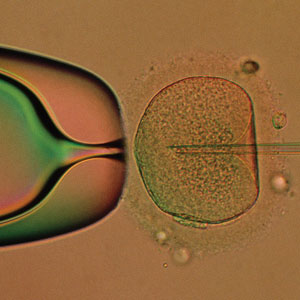NICE has urged commissioners to fund recommended IVF treatments on the NHS and end a ‘postcode lottery’ of care for infertile couples across the country.
The watchdog has rubber-stamped a set of ‘quality standards’ highlighting the key evidence-based IVF that it says CCGs should offer as part of core NHS services, which include offering women under 40 three full cycles of IVF, and those aged 40 to 42 years one full cycle.
NICE proposed the standards earlier this year because many CCGs were failing to offer couples the latest recommended fertility treatments. It argues NHS England is obligated to the standards on board, under the Health and Social Care Act 2012.
However, many CCGs do not offer the full range of treatments, according to research by the organisation Fertility Fairness. This found fewer than one in five CCGs offer the full number of NICE-recommended cycles, with half offering just one cycle to eligible couples.
NHS Vale of York CCG refuses IVF treatment altogether, NICE said, while Mid Essex CCG recently announced it would no longer provide any specialist fertility services except in ‘exceptional clinical cases’, following a consultation.
Related stories
What not to do – women’s health
CCG warned in court for disregarding NICE guidance
Dilemma: Prescribing fertility treatment on the NHS for self-funding patients
Professor Gillian Leng, deputy chief executive and director of health and social care at NICE, said: ‘Some parts of England are doing very well in offering the full NICE-recommended number of IVF cycles for all eligible women up to the age of 42. This is particularly true in the North, in areas like Northumberland, Oldham and Cumbria.
‘Others are still to introduce a cycle of IVF for women between the ages of 40 and 42, but have at least committed to providing three full cycles of IVF to women under 40 years old, such as Camden and Gloucestershire. But, many areas are not even doing this.’
A recent court ruling reprimanded a CCG for refusing to offer oocyte preservation to a woman undergoing chemotherapy, which is also recommended in the NICE fertility guidance.
However, CCGs argue they are facing huge financial pressures that mean they have to make difficult decisions over which recommended treatments they prioritise.
Dr Rosie Benneyworth, chair of the clinical operations group at NHS Somerset CCG, said commissioners wanted to offer the full range of recommended treatments but fertility treatment was an area that would be under review at the CCG.
Dr Benneyworth said: ‘Some CCGs may find difficult to afford/prioritise the recommendations in the guidance over other areas. We have set up a clinical commissioning policy forum and shall be reviewing the IVF policy that is currently in place.’
She added: ‘At present there is a wide variety across the South West in terms of how many cycles are funded. We are a CCG that believes firmly in commissioning NICE compliant services and pathways, but we need to understand the financial implications of the NICE recommendations and whether we can afford them within the CCG budgets.’











